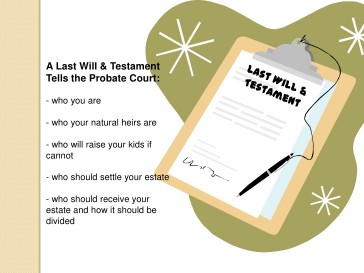What to do when someone dies

Unfortunately, whilst coping with the trauma of someone dying, there are some practical things you need to do. This article deals with the key elements.
Registering the death
It is a legal requirement that the death is registered as soon as possible, certainly within 5-days in England. You can find the local Register Office at this address – you need the nearest one to where the death occurred. The key item you will need is the Medical Certificate of Cause of Death, which will be issued by the Doctor certifying the cause of death.
If available you will need the following documents and/or information:
- birth certificate
- Council Tax bill
- Driving Licence
- marriage or civil partnership certificate
- NHS medical card
- Passport
- proof of address (e.g. utility bill)
You’ll need to tell the registrar:
- the person’s full name at the time of death
- any names previously used, e.g. maiden name
- the person’s date and place of birth
- their last address
- their occupation
- the full name, date of birth and occupation of a surviving or late spouse or civil partner
- whether they were getting a State Pension or any other benefits
- whether they are being buried or cremated (if you don’t know, finding a Will may give you the answer)
You should also take supporting documents that show your name and address (e.g. a utility bill), but you can still register a death without them.
The Registrar will then trigger the “Tell us once” service, which will save time in contacting various Government Departments about the death.
Securing the property
As we discovered with some incredulity when Cilla Black died, burglars target empty properties, particularly after a bereavement. Consequently, it is important that the property is secure and, wherever possible, portable valuables removed to another secure location.
You need to notify the insurer, but remember, most household insurance policies provide little or no cover for theft and/or damage much beyond 30-days when a property is unoccupied.
With a rented property you’ll want to get it cleared and the keys back to the Landlord pretty quickly in any event, so the rent stops. However, even with an owned property, clearing it of anything in the least bit attractive to a burglar as quickly as is possible is the wisest thing to do.
Sundry arrangements you need to consider are:
- Arrange for pets to be looked after
- Cancel regular deliveries – newspapers, milk, etc.
- Arrange redirection of the mail, preferably to the person dealing with the financial affairs
- In winter ensure the property is protected from frost, either by draining the water system or leaving central heating switched-on.
- Advise Clubs, Societies, Churches, etc of which they were a member
Arrange the funeral and burial or cremation
The registrar will have given you a Certificate of Burial or Cremation, which is the key piece of paper the Funeral Director needs. However, before selecting a Funeral Director see if there is any evidence of a pre-paid funeral plan, as that will not only help with the costs, but may well dictate which Funeral Director is used
Financial matters
Someone, an Executor, if there is a Will, or an Administrator, if there is no Will, needs to sort-out the financial affairs and pay for the funeral expenses.
To help them out you need to be on the lookout for valuables and business papers of all sorts, including:
- Cash
- Jewellery and other valuables
- Items specifically refereed to in the Will – “My Toby jug”, etc.
- Debit, credit and store cards
- Bank/Building Society statements and/or passbooks
- Investment and pension statements and/or certificates
- Life assurance policies
- Correspondence from financial advisers, stockbrokers, investment managers, etc
- Tax papers, such as a Notice of Coding or an assessment/tax bill
- Household bills – water, electricity, gas, telephone, etc
- Credit card statements
- Mortgage statement
- Loan and/or credit agreements
If in doubt, take it and let someone else worry about whether it is relevant or not.
Applying for Probate
A Grant of Probate is a document issued by the Court confirming that there was a valid Will and who the Executor(s) is/are. This then authorises Banks, Life Assurers, Investment Houses, etc to release savings and investments to the Executor(s).
If there is no Will an application is made for a Grant of Letters of Administration, which is also issued by the Court and has the same effect as Probate, but without the Will – see my blog regarding who gets what when there is no Will.
For the estates of people dying in England & Wales, leaving a valid Will, which appoints no more than 4 Executors, the application for Probate can now be completed online.
Before commencing the Probate application, one of two IHT Returns have to be completed, which can also be done online. The IHT205 is used in simple estates of less than £1 million, where there is no IHT to pay, whereas the IHT400 is used in more complex estates in excess of £1 million or where there is IHT to pay.
Remember, before attempting to complete the IHT Return, you need to have full details of the estate – assets, liabilities, gifts within 7-years, associated Trusts, for example – with valuations. Property and personal possessions likely to be worth more than £500 need to be professionally valued. If you are the Executor and you report inaccurate or misleading information to HMRC, which materially affects the amount of Inheritance Tax payable, you could be personally liable for any shortfall, interest and penalties.]
Banks and Building Societies will generally release funds prior to Probate to pay Inheritance Tax (and funeral costs).
Do I need to apply for Probate/Letters of Administration?
A Grant is only needed to deal with assets in the sole name, any assets in joint names can be dealt with just on production of the death certificate. The question is, how big are the assets in the sole name? Generally, if they are in excess of £15,000, a Grant may be needed, but some Banks and Building Societies may release larger sums without a Grant. If the estate is relatively small, just ask.
Can you help?
Yes. I can help with all the formalities, both before and after the issue of the Grant.
Why use Clive Barwell?
I’m a registered Trust & Estate Practitioner and I have been advising on estate administration since the start of my career in 1971, so I am vastly experienced.
What next
If you need help with any of the matters raised in this article, please contact me using the form below.







-

-

-

0800 074 8755info@clivebarwell.co.uk